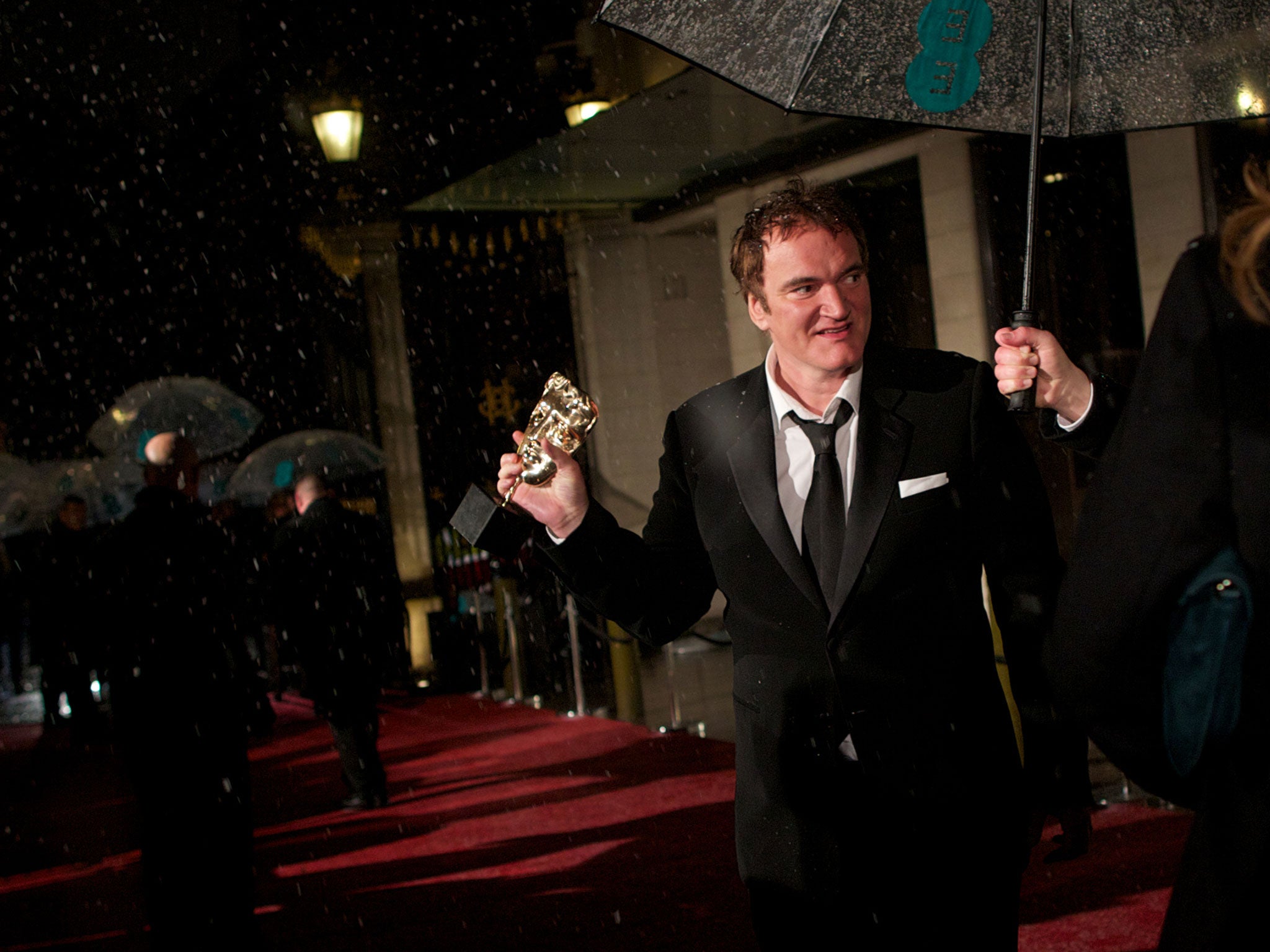If these people are stars, why are they so dull when they win an award?
Plus: The underground enigma of Kasper Holten and Sky offers no escape from the waltz-meister


There is a down-side to the Golden Globes, the Baftas and the Oscars coming fast upon each other. The same films tend to win most of the major honours, though that's not the down-side. The down-side is we get the same people making the same speeches. And, because they are award-winning actors and directors, they are by some strange tradition of awards ceremonies the most boring speakers in the world.
At last Sunday's Baftas I was delighted to hear host Stephen Fry publicly urge all the award winners to limit the thanks they gave to their colleagues. Of course, they ignored him. He might as well have asked them to dress down. Award-winning actors and directors only know one speech – the "thank a list of names" speech. Why couldn't Stephen Fry have gone further? Why could he not have outlawed thanks altogether and insisted on one joke and one anecdote per speech?
I may have mentioned before that, in all the awards ceremonies I have attended, there are only two speeches I can recall, one by Vanessa Redgrave when she broke down in tears as she thanked the stage carpenter, and one by beautiful Parisian playwright Yasmina Reza, who won Best Comedy for her play Art, and declared haughtily: "It is interesting to win best comedy when I thought I was writing a tragedy", then departed the stage. Virtually every other "speech" has been a list of thankyous.
Last Sunday's Baftas contained example after example of the typical, flat awards speech. What is so galling is that the speakers, or thankers, were some of the most interesting people around. Did Quentin Tarantino, of all people, have to start thanking people? Was the guy making that boring thank-you speech related to one of the wittiest and most controversial figures that Hollywood has produced?
Couldn't he have used the occasion and the vast TV audience to give his definitive view on violence in his films, or at least make a Tarantino-esque gag about it? A gag? Now that would be a radical departure from awards speech etiquette. Almost as radical as a behind-the-scenes anecdote, a piece of inside info about the making of the movie or the behaviour of a fellow actor/director that could really tell us something we didn't know and make us feel special.
Exactly when was it that it became de rigueur for award-winners to bore the pants off us by thanking bunches of people we have never even heard of? Who decided that they should be exempt from the normal rules of speaking – be funny or moving or informative or entertaining? I'd settle for just one of the four. The huge irony is that these are people who do have real stories to tell regarding fascinating projects and world-famous people. And yet they blow it every time. Here's a thought. They wouldn't dream of coming to the Baftas or the Oscars without a stylist or a dress designer or a hairdresser? How's about adding a speechwriter to the entourage?
The underground enigma of Kasper Holten
You may have seen some striking posters on London underground stations for the new Royal Opera production of Eugene Onegin. They proclaim: "Kasper Holten [in big white letters] directs a new production of Eugene Onegin." Much nearer the bottom of the poster Tchaikovsky gets a mention, while the poor singers don't seem to be name-checked at all. The Danish opera director Kasper Holten is the much esteemed new head of the Royal Opera, and an excellent appointment at Covent Garden. His name will, I'm sure, soon be well known in the arts community, and even better known by London's commuters.
Ri-eew! Sky offers no escape from the waltz-meister
I'm a big fan of Sky Arts, though I have never quite understood their obsession with the violinist, and waltz specialist, André Rieu, who seems to be on quite a lot. Perhaps it is because he is something of a favourite with ladies of a certain age. Now Sky Arts is to re-brand one of its arts channels, Sky Arts 2, as Sky Arts Rieu for a whole fortnight, and show nothing on it but Rieu 24 hours a day. Can this really be just because Rieu rhymes with two, or (scarcely much better) that he is a big ratings puller? Either way, one can have too much of a good thing, one can definitely have too much of an average thing, and it really isn't what the normally excellent Sky Arts should be doing.
Join our commenting forum
Join thought-provoking conversations, follow other Independent readers and see their replies
Comments
Bookmark popover
Removed from bookmarks